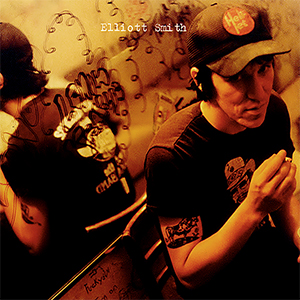Either/Or
 I learned today that the Elliott Smith record is inspired by a book of essays of the same name by Soren Kierkegaard. Apparently, Kierkegaard set out the stages of existence and contrasts a life of aesthetic pursuit with one of ethical commitment. I came upon all of this information while doing internet searches related to Walker Percy's The Moviegoer, which is one of my favorite novels. Percy created his narrative after reading Either/Or and the passage from empty pursuit to commitment is a compelling framework for his story (and that of many others to which I am drawn, including High Fidelity and Sideways).
I learned today that the Elliott Smith record is inspired by a book of essays of the same name by Soren Kierkegaard. Apparently, Kierkegaard set out the stages of existence and contrasts a life of aesthetic pursuit with one of ethical commitment. I came upon all of this information while doing internet searches related to Walker Percy's The Moviegoer, which is one of my favorite novels. Percy created his narrative after reading Either/Or and the passage from empty pursuit to commitment is a compelling framework for his story (and that of many others to which I am drawn, including High Fidelity and Sideways).
Why was I Googling The Moviegoer? Because I am having a particularly empty day, wasted morning, wandering my neighborhood, ending at a cafe where I sit and surf while another draft of my article is due to my bosses at work. This follows a phone conversation last night with one of my best friends (with whom I share a general career trajectory) during which we discussed (1) his recent triumphant speech to an audience of public interest lawyers and his stunned mother, (2) his upcoming sabbatical leave, the second in three years, (3) his litigation on behalf of a detainee at Guantanamo, and (4) my recent withdrawal from a conference in Berlin in July on the advice of the aforementioned bosses. He is a good man and a good friend, as close as a brother to me in many respects, but I can't help but be depressed after we speak on the phone. So I awoke in a hole and I stay bored and listless, unable to engage with the work that I must do. I think of alternate careers and (laughably) curse my own freedom to write at a cafe.
Plane tickets and hotel reservations for Berlin are cancelled. I withdraw from the panels on which I was to speak. After (1) being one of three people in a group of twenty at a conference not to be selected for publication in a book two years ago, (2) being passed over for consideration for a higher position in my workplace, (3) watching friends with my qualifications make more money and acquire greater purpose and focus as they age, and (4) having close friends be surprised when I am selected for some honor, such as a speaking role in a graduation ceremony, I wonder when the indignities will cease. My aspiration for a life of ethical commitment remains out of my grasp because of the life preferences of my partner and the simultaneously purpose-killing structurelessness and imprisonment of my work as currently constructed. Others tell me how good I have it and to remain in pursuit of their goals. I want to not wake up in the morning.









